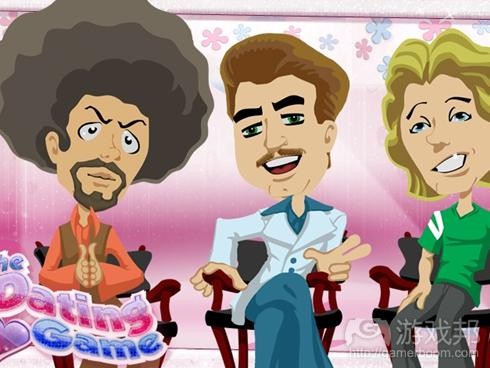盘点社交游戏与电视节目的5大共同点
作者:Brian Poel
把剧情添加到社交游戏中,你是不是遇上了麻烦?还是说,剧情根本不重要,所以连试一试的必要都没有,反正社交游戏永远处于测试状态?振作一点!如果你还在根据游戏机游戏和电脑游戏来模式化剧情编写,那你就走上岔道了。不如看看电视剧从中获取灵感吧……
社交游戏是活的
社交游戏就像是一只活生生的、会呼吸的动物。它虽然能时时对玩家的活动作出相应的反应,却没有精装的指南向玩家展示所有可能结果。社交游戏的剧情甚至没有真正的“结局”可言,因为社交游戏从来就没有真正的结束。开放性环境下的剧情发展更像电视剧,而不是电影或书籍,更不用说传统的游戏机或零售版电脑游戏。接下来我们就来盘点一下电视与社交游戏的相似之处……
1.内容丰富
电视节目对内容的需求可谓海量。无论是情景喜剧或戏剧的每周节目计划表,还是新闻或时尚评点的日节目安排表,编写人员的工作就是不断地填塞节电视节目表这只贪得无厌的怪兽。
社交游戏面临着相同的压力。玩家希望每周都有内容更新,如新任务、更多的新功能或主线任务等。
2.工作期限
为了支持内容流量,电视剧编写人员要根据整个季度的截止日期工作。因为各个脚本都可能是一个延续数周的计划,所以在每周上映各部剧集前,他们在各个进程阶段都要同时编写几个剧集。
这种计划是一个重复的进程,社交游戏写手也从可以从中受益,即根据计划表来确定、测试和装载新内容,从而保证多重项目同期运行、各个项目时间轴同时展开。有些新功能需要额外编程或在进行发布前的A/B测试,就更有必要提前安排了。
3.反馈循环
观众对某个角色或或部分剧情的反响,是电视剧编写人员要保持敏感性的方面。借助对关注群体、粉丝网站的“潜伏”观察和其他市场调查工具,编写人员得以紧跟时下热点,然后把这种反馈整合到以后的剧集中。如果某个配角受到前所未有的热捧,就有可能从当季剧集之初的配角荣升为剧集末的核心角色;而那些反响太冷的角色(演员)就有可能遭遇相反的命运。
在这方面,社交游戏编写人可以借助高度细化的性能参数,来观察玩家的游戏进程的总体信息。回顾玩家的行为信息应该是每位编写人分析得失和决定主要功能更新的每日必修课。
4.消耗节奏
每天的剧集放映除了剧集本身还包括商业广告,而每周的电视剧放映量则由每天的剧集放映构成。编写人物脑袋里装满各种各样的技巧,能保证每天的广告时间过后,观众还能兴味盎然地返回来继续看、然后每周跟进剧情发展,就好像追随一场扣人心弦的比赛。特别强悍或吊胃口的结局甚至能让粉丝们津津乐道一整个夏天!
社交游戏的节奏何尝不是如此。绝大多数玩家不是一整天连续地上游戏,也就是在一天当中间歇性地玩一把。所以,时间表和精力值这类设定就被加以改良,以充分利用和加强这种节奏。考虑到单个任务是不太可能同时开始和结束,且剧情线路被连系在一起的若干任务可以作为长期计划让玩家玩上一整个星期,所以社交游戏的剧情要根据这种结构来编写。
5.收益支柱
电视剧编写人员的敏感性不止表现在观众的反应上,还有收入渠道:广告、DVD销售、节目出售等等。一部剧集如果对某类人群有极强的吸引力,特别是这类人恰好又是广告商的热点目标,那么这部剧集在广告商中将变得相当抢手。一旦编写人员抓住了这类观众群,他们就要努力维持观众所喜好的剧情样板,以免流失这些观众。
虚拟商品是社会游戏的主要收入渠道,所以社交游戏编写人对虚拟商品的销售相当敏感。通过不断的测试和反复编排,编写人可以发现某个游戏的玩家的消费热点:精美的装饰、精力、任务捷径道具、强化道具等等。分析师定位这些热点后,就告之编写人如何安排之后的内容更新。
未来走向
随着社交游戏市场的进一步成熟,我们应该会看到更多电视剧和社交游戏编写之间的相似之处吧?长篇剧情结构大概会相当于一季度电视剧的发展主题。也许应时任务还可以吸收过去一周发生的新闻热事。也许现有的剧情样板会有所演变,把游戏当成一种电视剧程序来定义和分化。也许有朝一日,我们会看到专业的电视剧编写人员进军社交游戏行业……(本文为游戏邦/gamerboom.com编译,如需转载请联系:游戏邦)
Social Games are like… TV?
Brian Poel
Are you having trouble adding story to your Social Game? Think it’s futile to even try, since Social Games are in a perpetual beta that is constantly evolving? Don’t despair! If you’ve been modeling your story writing after retail console or PC games, you’ve chased yourself down the wrong rabbit hole. Go watch some Television instead…
Social Games are Alive
Social Games are living, breathing animals that react to their players week after week. They have no shrink-wrapped guidebooks that lay out all possible outcomes. Social Games don’t even have real “endings” to their stories, because the game never really ends. The story possibilities in this open environment are a lot more like TV shows than either movies or books, let alone traditional console or retail PC games. Let’s look at some of the similarities between TV and Social Games…
Feeding the Dragon
TV shows have a voracious appetite for content. Whether it’s the weekly schedule for a sitcom or drama, or the daily schedule of news or pop commentary, writers are constantly feeding the insatiable monster that is the TV schedule.
Social Games have the same pressure. Players expect new content every week, in the form of short quests and missions, and also from more substantial releases of new functionality or major quest lines.
Deadlines
In order to support this flow of content, TV writers are working to deadlines all season long. Since each script can be a multi-week project, they’ll have several episodes in various stages of progress, juggling each of them further down the pipeline every week.
Social Game writers also benefit from following a repeatable process whereby new content can be approved, tested and shipped, in order to keep multiple projects in the air at once, each on their own timeline to launch. This planning ahead is especially important for any new functionality that needs extra programming or for experimental quests that need A/B testing prior to wider release.
Feedback Loops
TV writers are sensitive to how their audience reacts to specific characters or story lines. Through focus groups, fan site lurking, and other market research tools, they keep an eye on what’s working and what’s not, and can incorporate this feedback into future episodes. Minor characters at the start of the season can become part of the core cast by season’s end if the character is unexpectedly popular — and the reverse can be true if a character (or actor) is falling flat.
Social Game writers have the luxury of highly detailed performance metrics to see aggregate details of how players progress through the game. Reviewing the player behavior dashboard over morning coffee should be every writer’s daily ritual of analyzing success and failure, and post-mortems on major functionality releases should be incorporated into the roadmap of future features.
Rhythm of Consumption
TV show stories are structured around commercials in an individual episode and around a weekly schedule between episodes. Writers have all sorts of tricks in their kit bag to get viewers to come back after the commercial break or to come back next week, like the ever-popular cliffhanger. An especially powerful or unexpected cliffhanger at the end of the season can keep the fan base buzzing all summer long!
Social Games also have a rhythm. The vast majority are asynchronous, meant to be played in fits and starts throughout the day. Game mechanics like Scheduling and Energy have evolved to take advantage of and to reinforce this rhythm. Stories in social games should acknowledge this structure, knowing that a single quest is not likely to be started and finished in one sitting, and a story line of several quests chained together could be a week-long project for a player.
Support the Revenue
TV writers are acutely sensitive to who’s paying the bills: advertising, DVD sales, syndication, etc. A show with a highly tuned demographic appeal, especially if that demographic is a hot target for advertisers, makes it very popular with the accountants. Once the writers have captured that demographic, they are committed to maintaining the story template that the audience has come to expect, lest they lost that audience.
Social Game writers are acutely sensitive to sales of virtual goods. Constant experimentation and iteration of the catalog will inform what a particular game’s audience wants to spend their virtual dollars on: aesthetic decorations, energy, shortcuts to quest completion, power-ups, etc. Once the analysts have zeroed in on these successes, this informs the writers on how to structure future content releases.
The Future
As the Social Game marketplace matures, will we see even more echoes between TV stories and writing for Social Games? Perhaps longer story arcs that feel like a TV show’s season-long theme. Perhaps timely quests that incorporate the past week’s news events. Perhaps recognizable story templates will evolve that define and differentiate games like a TV procedurals. And perhaps we’ll see professional TV writers branch out into working in the Social Games industry…(source:plotluckgames)









































